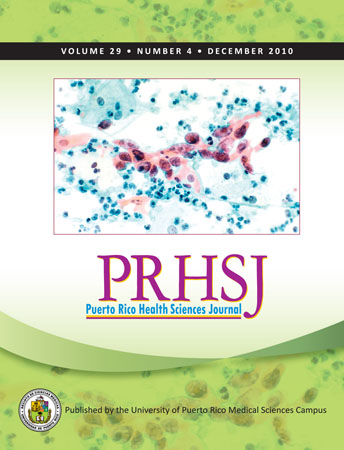Abstract
A case to illustrate the utility of genetic screening in warfarin (Coumadin®) management is reported. A 45 year-old woman of Puerto Rican ancestry was admitted to the emergency room twice within one month with chest pain. She was diagnosed with congestive heart failure, which was stabilized both times. At her second release, warfarin therapy was initiated at 5 mg/day to prevent thrombus formation and was lowered to 3.75 mg/day at day 7 by her primary physician. International Normalized Ratio (INR) test results in the follow-up period at days 1, 7, and 10 of warfarin therapy were 4.5, 6.5, and 7.3, respectively—far in excess of the therapeutic range, despite the lower dosage in effect from day 7 onward. The patient achieved target INR over the next 43 days after downward adjustment of the dose to a dose of 1.5 mg/day by trial and error. DNA-typing specific for the CYP2C9*2,*3,*4,*5,*6 alleles and seven variants in the VKORC1 gene, including the VKORC1-1639 G > A polymorphism, revealed the presence of combinatorial CYP2C9*2/*3 and VKORC1-1639 G/A genotypes in this patient. Entering the patient’s demographic and genotype status data into independent algorithms available in the public domain to predict effective warfarin dose yielded predicted doses which ranged from 1.5 to 1.8 mg/day. Notably, the prediction of 1.5 mg/day, which was generated by the online resource www.warfarindosing.org, coincided with the patient’s actual effective warfarin dose. We conclude that the rapid rise in INR observed upon the initiation of warfarin therapy and the final effective warfarin dose of 1.5 mg/day, are attributable in some part to the presence of two minor alleles in CYP2C9, which together significantly reduce warfarin metabolism. Warfarin genotyping can therefore inform the clinician of the predicted effective warfarin dose. The results highlight the potential for warfarin genetic testing to improve patient care.
Authors who publish with this journal agree to the following terms:
a. Authors retain copyright and grant the journal right of first publication with the work simultaneously licensed under a Creative Commons Attribution License that allows others to share the work with an acknowledgement of the work's authorship and initial publication in this journal.
b. Authors are able to enter into separate, additional contractual arrangements for the non-exclusive distribution of the journal's published version of the work (e.g., post it to an institutional repository or publish it in a book), with an acknowledgement of its initial publication in this journal.
c. Authors are permitted and encouraged to post their work online (e.g., in institutional repositories or on their website) prior to and during the submission process, as it can lead to productive exchanges, as well as earlier and greater citation of published work (See The Effect of Open Access).
